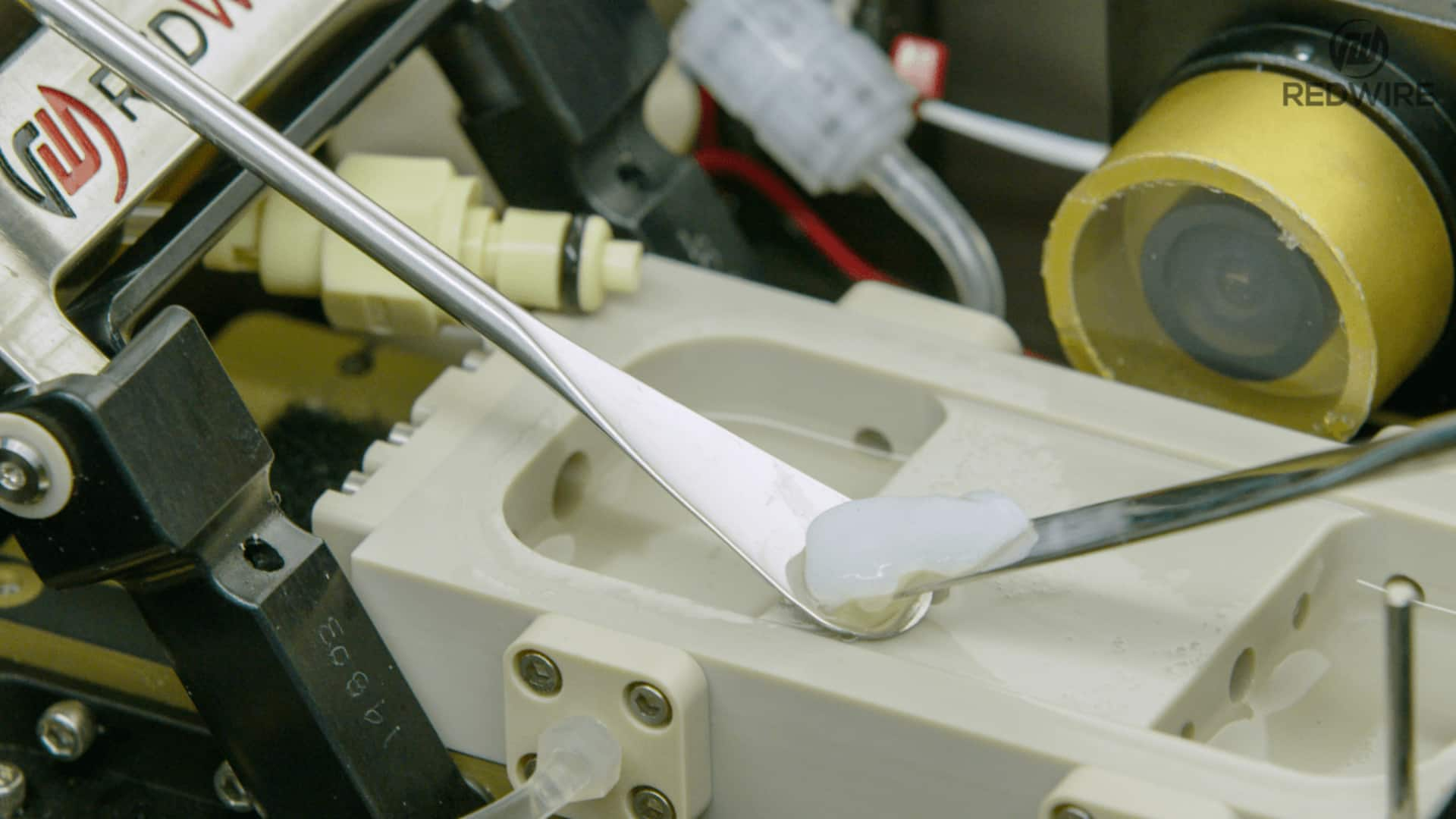
Human cartilage 'bioprinted' in space for the first time
What's the story
American start-up Redwire Space has achieved a groundbreaking milestone by successfully "bioprinting" a human knee meniscus with living cells aboard the International Space Station (ISS). The meniscus— a thin, fibrous cartilage—was printed on the Florida-based company's BioFabrication Facility (BFF) and underwent a 14-day enculturation process. This breakthrough could have a significant impact on meniscus injury treatment and further biotechnology advancements.
Details
BFF-Meniscus-2 investigation's successful outcome
Redwire's state-of-the-art BFF is located on the ISS and has the capability to print complex tissue with living human cells. The BFF-Meniscus-2 investigation was conducted in partnership with the Uniformed Services University of the Health Sciences Center for Biotechnology. After the culture process, the meniscus was sent back to Earth aboard SpaceX's Crew-6 mission.
What Next?
Revolutionizing meniscus injury treatment
Meniscus injuries are among the most common orthopedic injuries. Athletes, particularly those who play contact sports, are at risk for meniscal tears. However, anyone at any age can tear a meniscus. Redwire's successful bioprinting of human knee meniscus in space could lead to the development of reliable bioprinting at scale, revolutionizing meniscus injury treatment. The company's long-term ambitions for bioprinting and microgravity research in space could also lead to further breakthroughs in biotechnology and in-space manufacturing technology.
What next?
Redwire's future biotech and space endeavors
Redwire plans to launch payloads focused on pharmaceutical drug development in microgravity and an experiment to bioprint cardiac tissue on a SpaceX Commercial Resupply mission to the ISS in November. Additionally, Redwire has partnered with Sierra Space to integrate its biotech and in-space manufacturing tech into Sierra's Large Integrated Flexible Environment (LIFE) space station module within the Orbital Reef project. Redwire's Executive Vice President John Vellinger called the meniscus printing a "major leap forward" toward reliable bioprinting at scale.